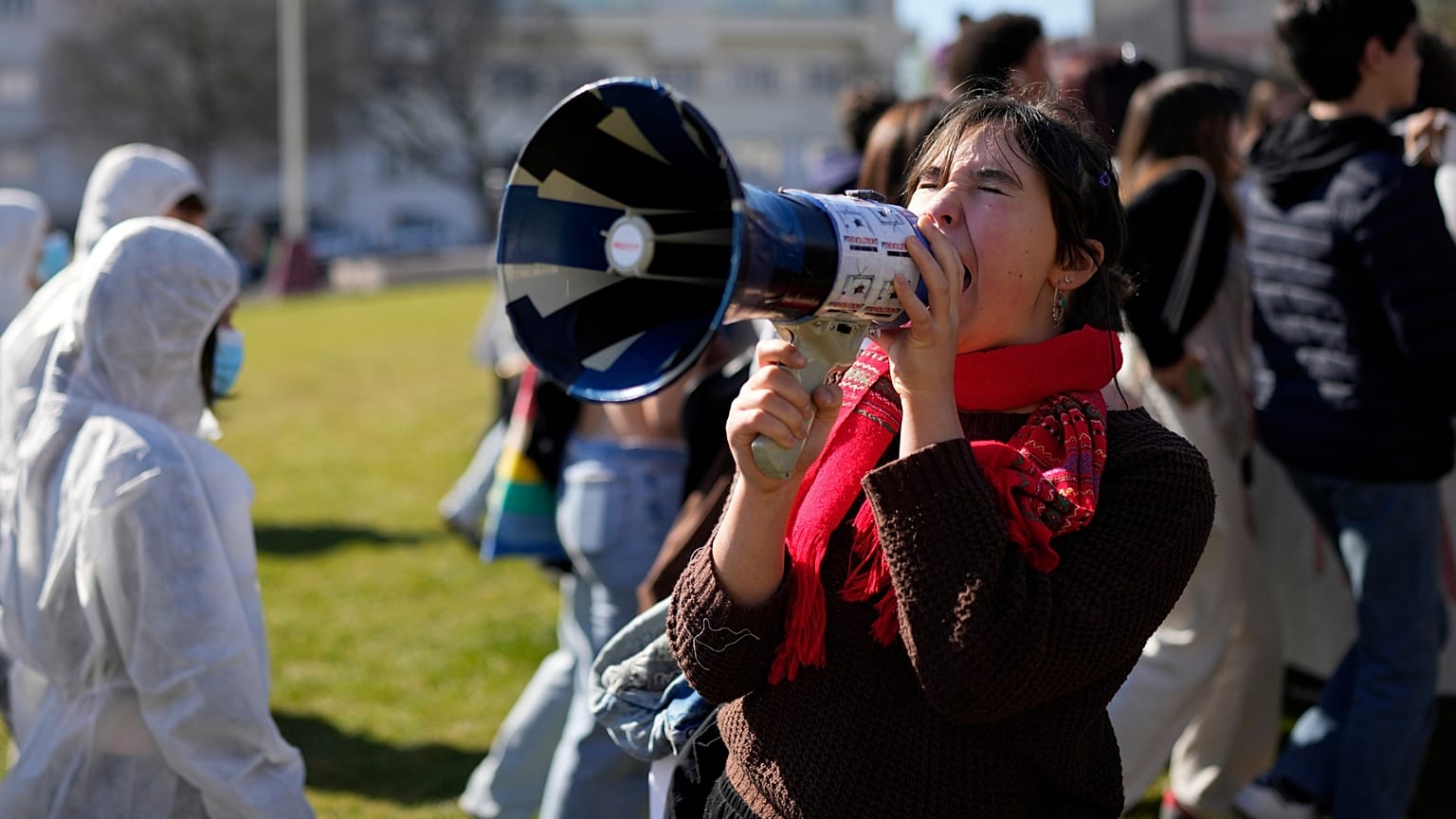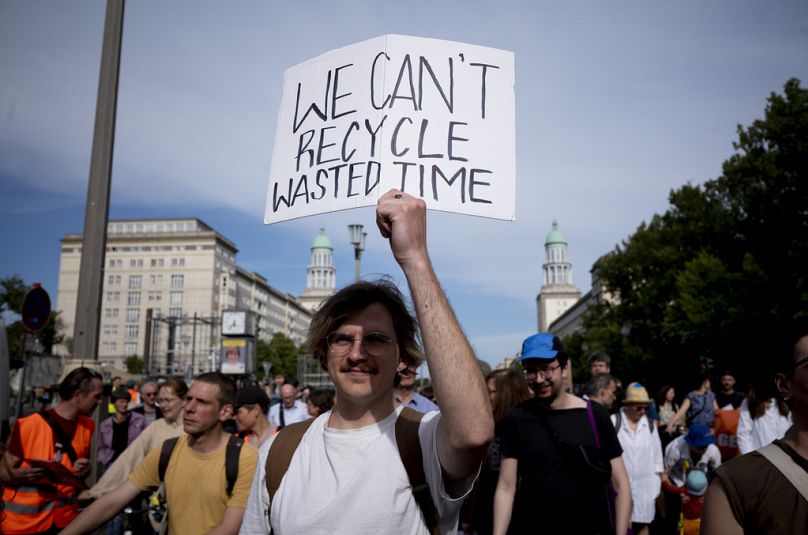Psychologists say the emotional motivations behind climate activism are not straightforward.
Anger could be a bigger motivator for climate activism than hope, a study in Norway has suggested.
 ADVERTISEMENT
ADVERTISEMENT
 ADVERTISEMENT
ADVERTISEMENT
Researchers asked 2,000 people about their feelings on the climate crisis and what would motivate them to take action. They found that for every two steps the participants took up their anger scale, they took one step up on the activism scale.
It suggests that the angrier they were, the more likely they were to say they would take part in a climate protest. The study found that the link between activism and anger was seven times stronger than it was for hope.
So what made the participants angry? Researchers say that, for most people they asked, it was human actions like causing the climate crisis or not doing enough to stop it. Just over a quarter said their anger came from human qualities like others not caring.
But understanding people’s feelings about climate change and activism is complicated. And the study asked about intentions, not actions they had actually taken.
Can we really predict what emotions will lead to action?
Previous research analysing which emotions drive people towards activism has given mixed results and experts warn against simplifying the argument.
We know that many young people feel anxiety or dread about the future of the planet. A 2021 Lancet study found that 84 per cent of people aged 16 to 25 across 10 countries were at least moderately worried and 59 per cent were very or extremely worried.
There are a number of psychological studies that show that fear increases the impact of information we are shown. It drives us to react but, without a clear direction to channel that motivation, we are more likely to avoid the information altogether.
Another analysis of research published this week found some evidence that increasing hope could increase engagement with climate issues. But the effect was stronger for those whose hope was channelled into action rather than complacency.
The authors say that future research should focus on how hope could promote engagement with climate issues - particularly for activists. Figuring out how to translate hope, anger and anxiety into productive action is a complicated question psychologists are still trying to answer.
What do activists say their motivations are?
For Linda Aspey, a climate psychologist who works directly with activists, the biggest emotional motivator she sees is love.
“The thing that I see most of all is love and solidarity. It is love that wakes people up.”
This isn’t necessarily a “selfish” love for their own family or personal interests, Linda adds, it is also a deep connection with the rest of the world - particularly those in the Global South seeing the biggest impacts of climate change - and with nature.
There is research to show that having a connection to the natural world makes people more likely to take action too.
“Activism comes more easily to people with a link to nature,” she says.
When it comes to specific reasons why people get involved with climate activism, Linda paints a complicated picture. There is a “massive range of emotions at different times” she says including grief, anger and hope.
Each person she speaks to has different motivations for their activism from young people terrified about what will happen now and in the future to older people, acting in solidarity with their grandchildren or children. It often depends on what stage they are at in their life and their personal experiences.
What Linda warns against is the trend to “pathologise” emotions around climate change by giving them labels like eco-anxiety.
“We might be tempted to typify behaviours but this is something on a scale we haven’t seen before.”


















